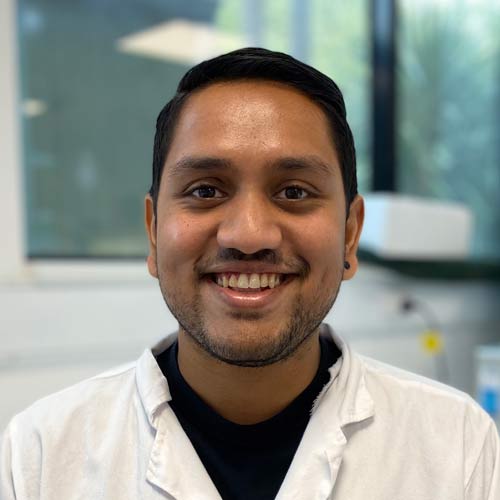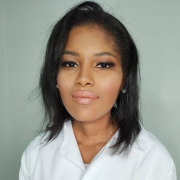1. Tell us about yourself.
My name is Rikeish R Muralitharan. I am a clinically trained medical doctor interested in discovery research. I recently completed my Ph.D. focusing on the role of diet, gut microbiome, and how microbial by-products are sensed by the host in relation to blood pressure regulation. I am now a research fellow at the Hypertension Research Laboratory, Monash University, led by Associate Professor Francine Marques.
2. What are your research interests?
My main interest is in how the host senses metabolites produced by the gut microbiota and how they regulate blood pressure. In particular, I am interested in metabolites called short-chain fatty acids – well-known beneficial by-products from the fermentation of fibre by the gut microbiome. Understanding their role in cardiovascular diseases could lead to the discovery of new treatment options.
3. What are you working on right now?
I am finishing experiments for a manuscript from my Ph.D. (https://doi.org/10.1101/2023.03.20.533376). I am also starting a new project investigating the role of short-chain fatty acid sensing mechanisms in vascular disorders. I am also co-leading one of Australia’s May Measurement Month sites – one of the few sites in Australia run by discovery/basic scientists; this allows our team to interact with the community and raise awareness about high blood pressure.
4. What do you hope to achieve in the field of hypertension over the next 5 years?
I hope to advance some of the work I am doing now – this includes better understanding of whether short-chain fatty acid receptors can be used as new therapeutic targets for hypertension and cardiovascular diseases in general.
5. What challenges have you faced in your career to date?
Like many others, I moved countries for my career and completed a PhD in a second language during the COVID era. However, I acknowledge that most of the challenges I have faced in my career are not unique to me. Having great supportive mentors helped me the most to overcome these challenges.
6. Which of your publications are you proudest of and why (please include paper reference)
I am proud of this manuscript, available as a preprint for now (https://doi.org/10.1101/2023.03.20.533376). It was a challenge to elucidate the underlying mechanisms which led to the extreme cardiovascular phenotype of the short-chain fatty acid signalling-deficient mice. However, I am excited that I could identify a new mechanism that may be driving hypertension when these receptors are not activated (e.g., we don’t have enough fibre in our diet or when we have a genetic deficiency in their signalling). I demonstrated this in the UK Biobank participants – those with a deficiency in both genes associated with gut metabolite sensing had higher blood pressure. In hindsight, I am also proud of the techniques I learned and the collaborations I established to get this manuscript done.
7. What is your favourite manuscript from a lab other than your own?
One of my favourite manuscripts is from Dominik Muller and colleagues, ‘Salt-responsive gut commensal modulates TH17 axis and disease’ (https://doi.org/10.1038/nature24628)
I remember reading this manuscript early on during my PhD for a review I was writing. I particularly liked this manuscript because the authors mechanistically determined and linked the gut microbiome to diet, immune system, and hypertension. In addition to mice studies, the study was also confirmed in a small human pilot study. That’s what I tried to strive in my manuscript above.
8. What are your passions outside of work?
Outside work, I like walking for mental health and reaching my target of 10,000 steps daily. I am a foodie, so I spend weekends trying new places (and there are plenty in Melbourne!). Despite limited traveling experience, I like to travel when I can!






















